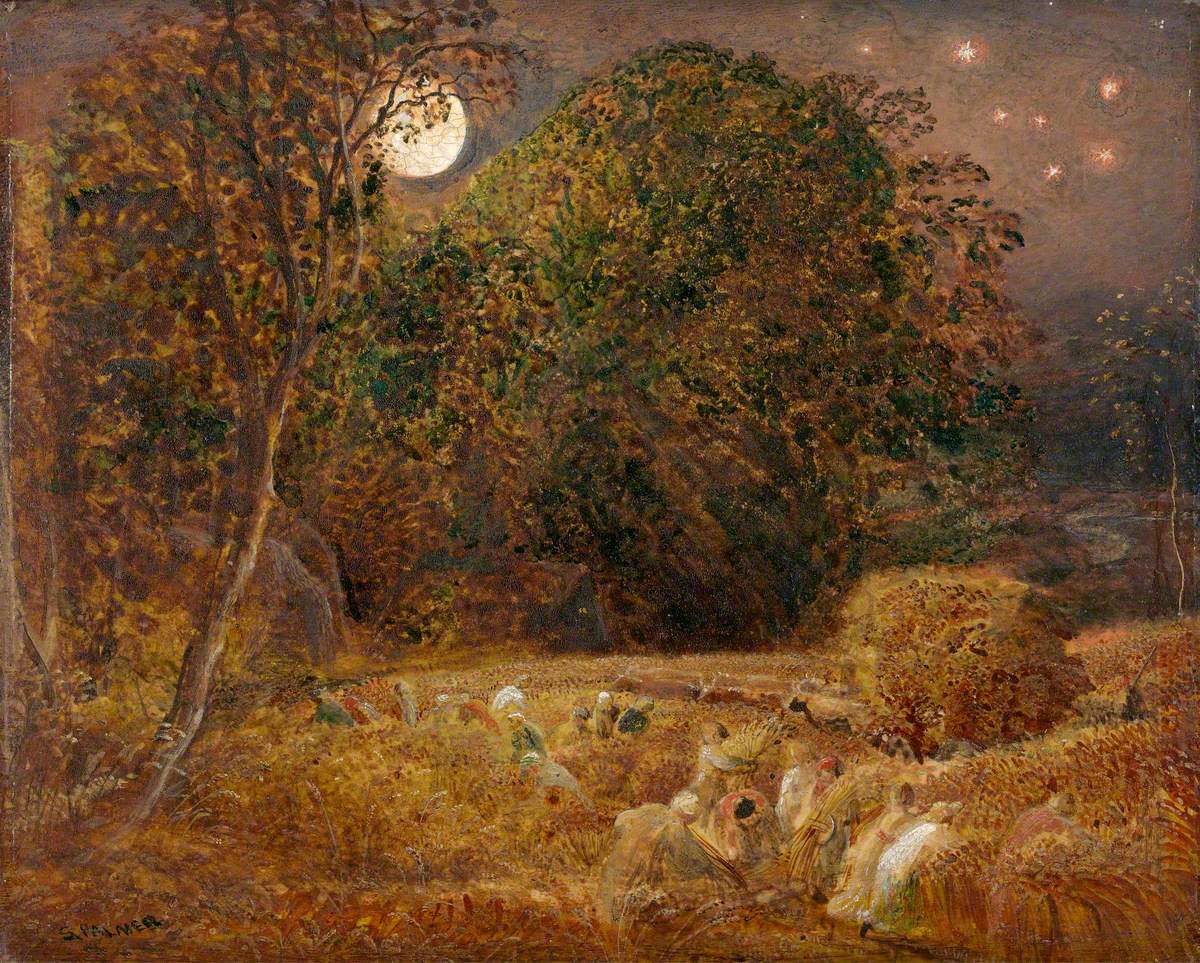-

The Harvest Moon by Samuel Palmer
Divinity
John Clare believed in the divinity of fields. I do too and have found more communion in landscapes than I ever did in a church service. My closest fields are the sprawling local park. It seems to me that an important part of divinity is quotidien devotion – not everything's trumpets and sunbeams. Many times my twice daily dog walk feels like trying to find divinity in drudgery. For very many reasons I stick with the same Bristol park, switching my route up as needs must to avoid cows, the muddiest paths, toddlers my dog might accidentally bowl over. So I see the park in all weathers, all seasons as well as in all the seasons of myself which are many. After a good morning or terrible week painting, full of hope, in despair. The park is truly ambivalent to my mood but is very often instrumental in nudging it somewhere else. I don't know how but its ambivalence is somehow key to its ability to straighten me out.
The park is large and varied and part of my walking strategy is to find the parts that fit the mood. There is an Arthurian mist around the lake for those mornings when I want to commune with magic. The woods can be contemplative or a little dreadful. If I’m feeling tense I find myself sticking to the asphalt paths. When I am wide open and at my leisure I dip into the least tamed fields and look at wildflowers, watch woodpeckers, walk very slowly like I own the place.
The dog walk is a part of my life I show total commitment to. Trudging through rain and shine, anger and sorrow, I have come to understand landscapes as things that we can fill with meaning. That we also transform land into landscape by our attention – by looking, working, undertaking creative acts. We grow close to landscapes (though they remain stubbornly at arms length from us) project desires, needs, and hopes onto their ambivalent scenes.